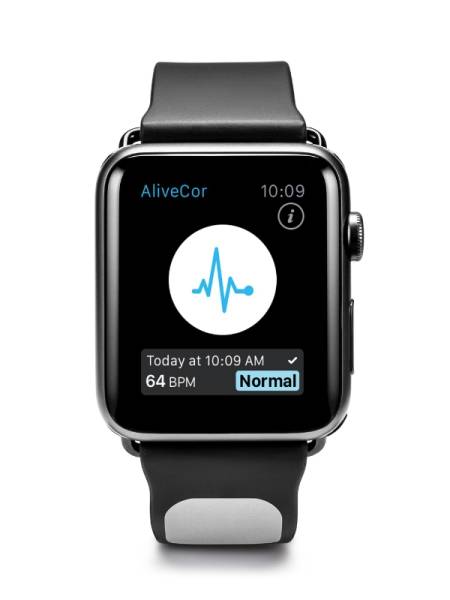"A Very Useful Device"
When you work the digital health beat you get used to coming across stuff that doesn't work as advertised. Kardia Mobile, the company's original portable EKG, doesn't seem to be one of those products. That standalone device, as well as the company's algorithm for detecting atrial fibrillation (AFib), are both FDA-approved.
AFib is the most common type of arrhythmia. Associated with stroke and heart failure, it affects 2.2 million people in the U.S., according to the National Stroke Association.
Dr. Gregory Marcus, the director of clinical research for UC San Francisco's Division of Cardiology, calls Kardia Mobile "a very useful device."
"It actually provides a real electrocardiogram," he says, "so it's not simply relying on one's pulse [which] can be inaccurate or not provide as much information."
An electrocardiogram records your heart's electrical activity, the electrical impulses that trigger a heartbeat.
Dr. Satish Misra, a cardiology fellow at Johns Hopkins University who also writes clinician-oriented reviews for the website iMedicalApps, thought the new Apple Watch product represented an incremental step in mobile EKG development. Kardia Mobile fits over your phone like a case. The coming Kardia Band, he says, "removes the step of taking [a device] out of your pocket," (You can read his write-up on yesterday's announcement here.)
Mobile EKGs Not Right For All Patients
Both Misra and Marcus like Kardia in part because it solves what Marcus called a common conundrum -- patients making an appointment between arrhythmia episodes.
"Someone often comes in and says, 'Every two or three days my heart feels like it's racing for 15 minutes. But it's not, right now," Misra said, adding that he often recommends AliveCor's mobile EKG. "It's probably less than your copay is going to be for the devices we normally prescribe. Just take it out and record when you're having symptoms."
But it's not right for every patient, he cautioned.
"You have to pick the patient right. It can't be somebody who takes out their phone and it takes them 10 minutes to figure out how to open an app. And it can't be somebody who's so symptomatic when they're having [an episode] that they're not going to be able to navigate using the phone to capture an [EKG]."
Marcus also said the device has limitations, especially its inability to monitor continuously, which is necessary for some patients. Many patients have asymptomatic arrhythmia, he said, so relying on intermittent checks can cause you to miss an episode.
"I'm reluctant to recommend it for laypeople without any sort of physician oversight," he said, "because some rhythms could still be missed and others could be interpreted as being present when they're not if there's a lot of artifacts."
Marcus cautions there's still a lot of research to be done to determine the best way to use the device and to understand exactly what its limitations are.
But, he says of AliveCor's first mobile EKG, "it's a nice advance that is convenient to use."

